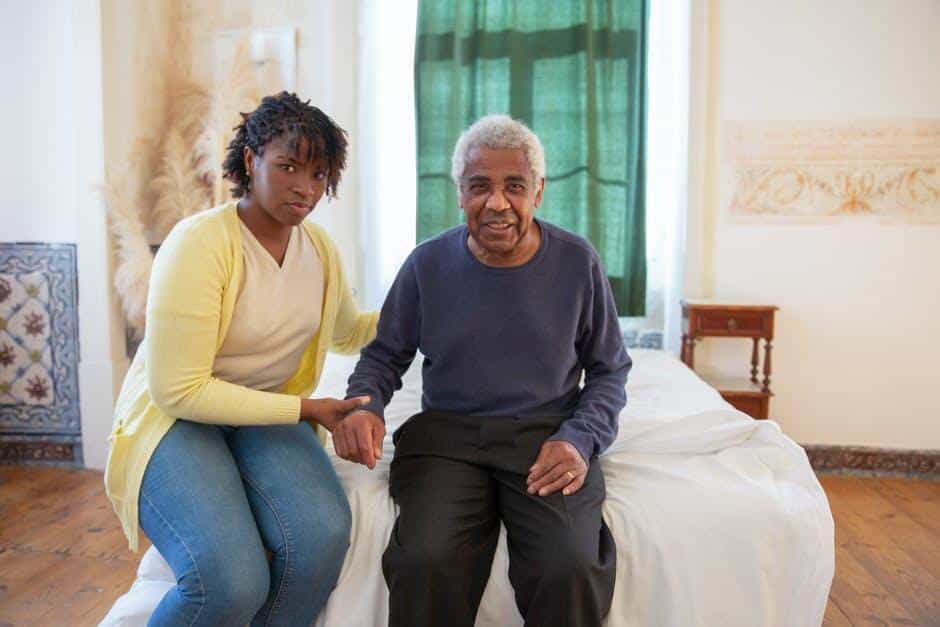According to The WHO, around 1 in 6 people who are 60 years and older experience some form of abuse in community settings. What’s even more concerning is that rates of abuse are higher in nursing homes and long-term facilities.
We deserve to age with dignity, and we put a huge amount of trust in professionals to provide that. Not only does the abuse betray that trust, but it also leads to serious injuries and psychological effects.
If you or a loved one isn’t feeling safe in their community, then you may have a valid nursing home abuse case. Read on to find out more about elder abuse so you can identify it and take the right steps.
Types of Nursing Home Abuse
Nursing home abuse actually refers to any form of harm directed towards the elderly, and this can involve several types. In addition, not only can the caregivers be abusive, but so can the staff and other residents. Abuse can also be intentional or due to neglect.
Now that you understand a little more about it, let’s go over the different types and signs of nursing home abuse.
Physical Abuse
Physical abuse happens when there’s deliberate harm to a senior’s body. Some of the obvious examples are hitting and shoving, but a resident can also be restrained or given drugs improperly.
Warning signs include:
- Unexplained bruises, burns, cuts, or fractures
- Marks on the wrists or ankles
- Frequent falls or injuries without proper documentation
- Sudden fear of certain staff members
- Staff not allowing private visits
Emotional or Psychological Abuse
With this type of abuse, a resident may go through verbal threats, humiliation, or isolation. As a result, they may experience mental and emotional distress.
Some of the signs of emotional or psychological abuse are:
- Sudden withdrawal from social activities
- Signs of depression, anxiety, or confusion
- Unusual behaviors like rocking, mumbling, or fearfulness
- Refusal to speak in the presence of certain staff
Sexual Abuse
Unfortunately, older adults can go through sexual abuse in nursing homes, which includes any non-consensual sexual contact or coercion. Those with dementia or physical impairments are especially vulnerable.
Warning signs to look for include:
- Bruising or injuries near private areas
- Torn, stained, or missing undergarments
- Sexually transmitted infections (STIs)
- Sudden fear of physical contact
Neglect
Neglect can happen when a nursing home fails to provide its residents with adequate food and water, as well as hygiene and medical care. Initially, it can be tougher to spot, but warning signs are:
- Malnutrition or dehydration (weight loss, dry skin, confusion)
- Bedsores
- Dirty clothing
- Unwashed hair
- Unsanitary living conditions (soiled bedding, pest infections)
- Untreated infections or injuries
Financial Exploitation
Those in a nursing home are in a vulnerable position, but they trust that their room is their safe space. However, some caregivers take advantage of elderly residents by taking note of where important items and money are stashed, and they may steal cash or forge documents. Some may even pressure seniors into financial decisions that are beneficial for them.
Signs of financial exploitation include:
- Unexplained withdrawals or charges on bank statements
- Missing belongings, jewelry, or cash
- Bills not being paid despite sufficient funds
- Unauthorized changes to wills or power of attorney
Nashville Nursing Home Rights
Before responding to elder abuse, you should first understand what the legal rights of nursing home residents in Nashville are. Not only are they protected under state laws, but also federal regulations.
In general, these are their rights:
- The right to dignity, respect, and a safe environment
- Freedom from physical, emotional, financial, or sexual abuse
- The right to adequate medical care, nutrition, and hygiene
- Protection against wrongful eviction or retaliation
- The right to file complaints without fear or punishment
The good news is that Tennessee law also requires nursing homes to report suspected abuse. However, family members themselves can take legal action if they feel like their loved one is going through abuse.
Do You Have a Nursing Home Abuse Case?
Do you suspect nursing home abuse? Then being aware of your loved one experiencing physical, emotional, or financial damage is only one step of the process. Here are the key factors to determine whether you have a legal case.
First of all, do you have hard evidence of abuse or neglect? This can be photos, medical records, financial statements, or witness accounts.
Also, is there a failure of the nursing home to act? If you brought up your concerns, did the staff ignore them or fail to provide proper care?
Check the regulations set by the Tennessee Department of Health and the Nursing Home Reform Act too. You may find that the nursing home’s failed to be compliant.
If one or more of the above apply to your loved one, then you may have a strong case.
Legal Steps for Abuse Cases
It’s imperative that you take action immediately if you suspect that your loved one is being abused. Document everything by taking photos of any injuries, living conditions, or unsafe environments. You should also keep a log of behavioral changes and any suspicious incidents, as well as save medical records and financial statements.
File a formal complaint with the facility, as they’re legally required to investigate and take action. If they don’t, then report the abuse to Adult Protective Services or local law enforcement if it’s an emergency.
Lastly, contact a Nashville nursing home abuse attorney. They can help you file a lawsuit, gather evidence, and seek fair compensation. For more details, we have a step-by-step guide you can follow.
Get Justice for Your Loved One
It’s never easy seeing your loved one out of their own home and in the care of others. It’s even worse when you face a potential nursing home abuse case, as it’s a serious violation of trust.
So stay vigilant for warning signs and report any suspected abuse immediately. With the help of a legal professional, you’ll be able to hold negligent facilities accountable and get justice for your loved one.
If you feel like you have a case, then contact us today. We at Cummings Law offer free consultations and have a proven track record.
Posted in: Nursing Home Abuse

